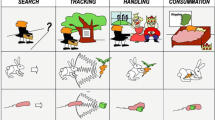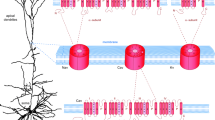Abstract
The principle of functional invariance states that it is a natural law that conscious beings with the same functional organization have the same quality of conscious experience. A group of arguments in support of this principle are rejected, on the grounds that they establish at most only the weaker intra-subjective principle that any two stages in the life of a single conscious being that duplicate one another in terms of functional organization also duplicate one another in terms of quality of phenomenal experience.
Similar content being viewed by others
Notes
See Chalmers (1996, 243–46). This way of arguing for the principle is not without dangers for a dualist, however, who must find a way for our possession of certain functional features to explain our possession of corresponding phenomenal features, without the latter simply reducing to the former. Whether this is possible is a large question beyond the scope of this paper.
See Chalmers (1996, 247–75).
Chalmers (1996, 256).
References
Broad, C. D. (1925). The mind and its place in nature. London: Kegan Paul, Trench, Trubner & Co.
Campbell, K. (1970). Body and mind. London: Macmillan.
Chalmers, D. J. (1996). The conscious mind: In search of a fundamental theory. Oxford: Oxford University Press.
Greenberg, W. (1998). On Chalmers’ principle of organizational invariance and his “Dancing Qualia” and “Fading Qualia” thought experiments. Journal of Consciousness Studies, 5(1), 53–58.
Jackson, F. (1982). Epiphenomenal qualia. The Philosophical Quarterly, 32(127), 23–36.
Kirk, R. (1974). Sentience and behavior. Mind, 83(329), 43–60.
Nagel, T. (1970). The possibility of altruism. Princeton: Princeton University Press.
van Heuveln, B., Dietrich, E., & Oshima, M. (1998). Let’s dance! The equivocation in Chalmers’ dancing qualia argument. Minds and Machines, 8(2), 237–49.
Author information
Authors and Affiliations
Corresponding author
Rights and permissions
About this article
Cite this article
Pelczar, M. On an Argument for Functional Invariance. Minds & Machines 18, 373–377 (2008). https://doi.org/10.1007/s11023-008-9110-x
Received:
Accepted:
Published:
Issue Date:
DOI: https://doi.org/10.1007/s11023-008-9110-x




